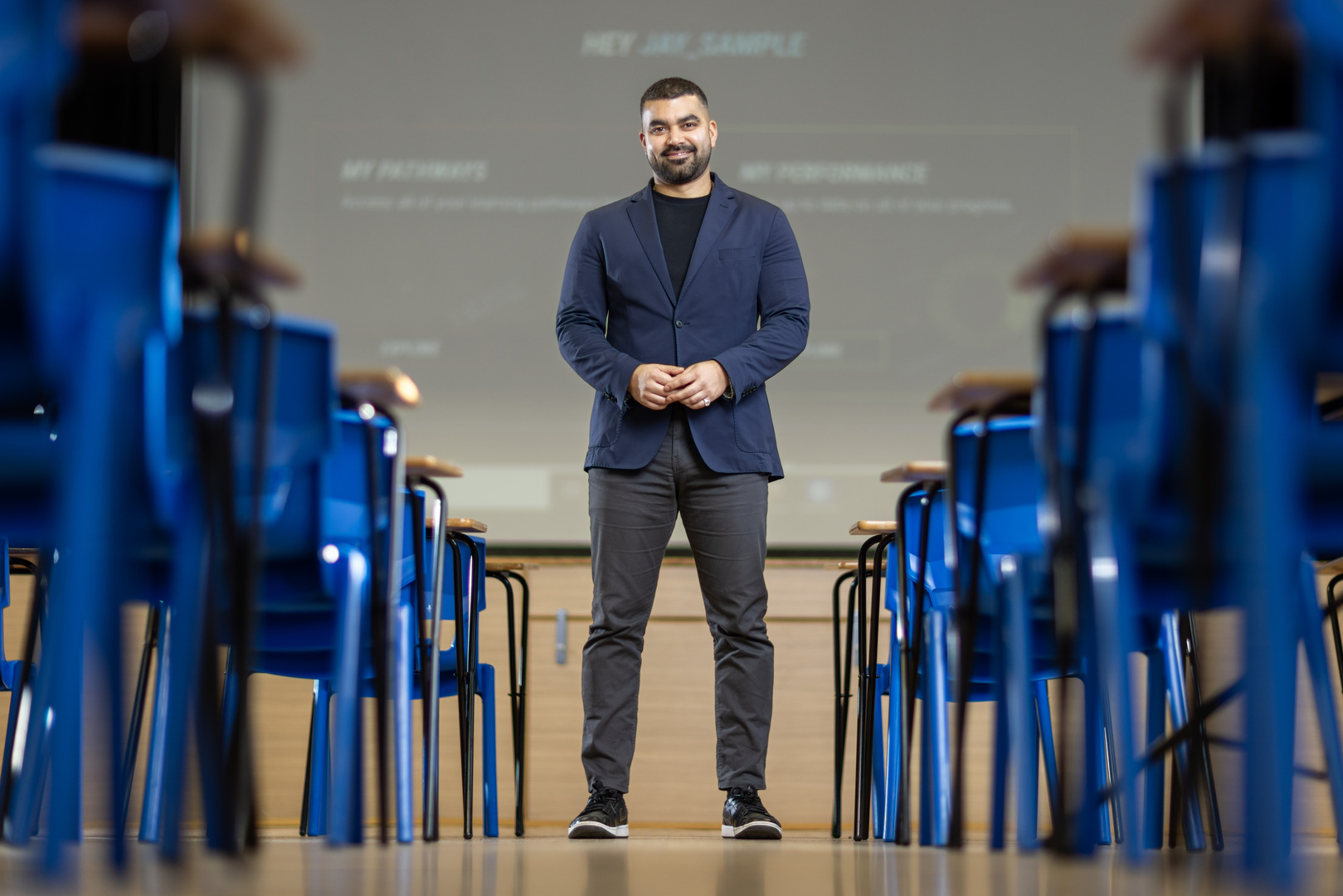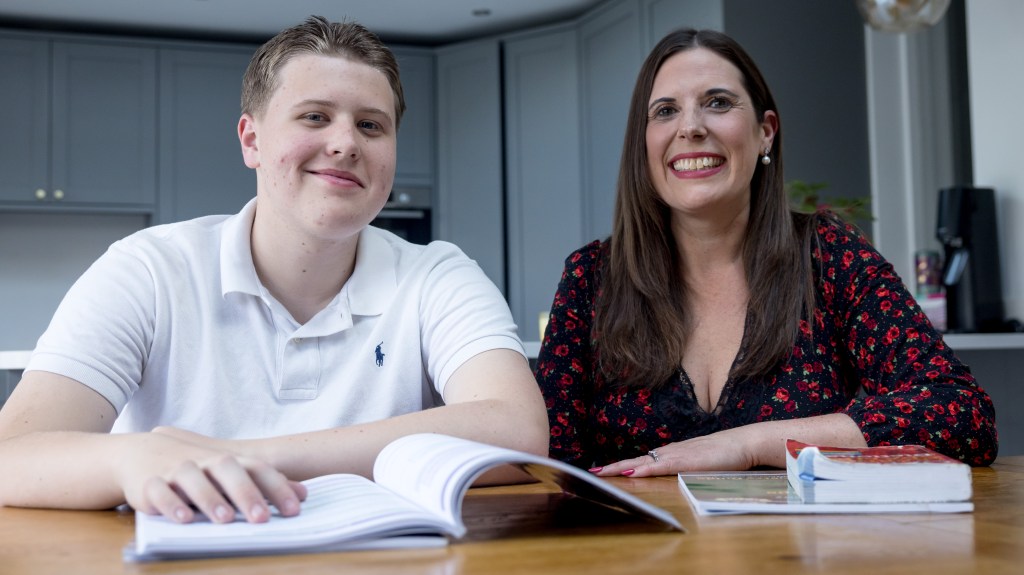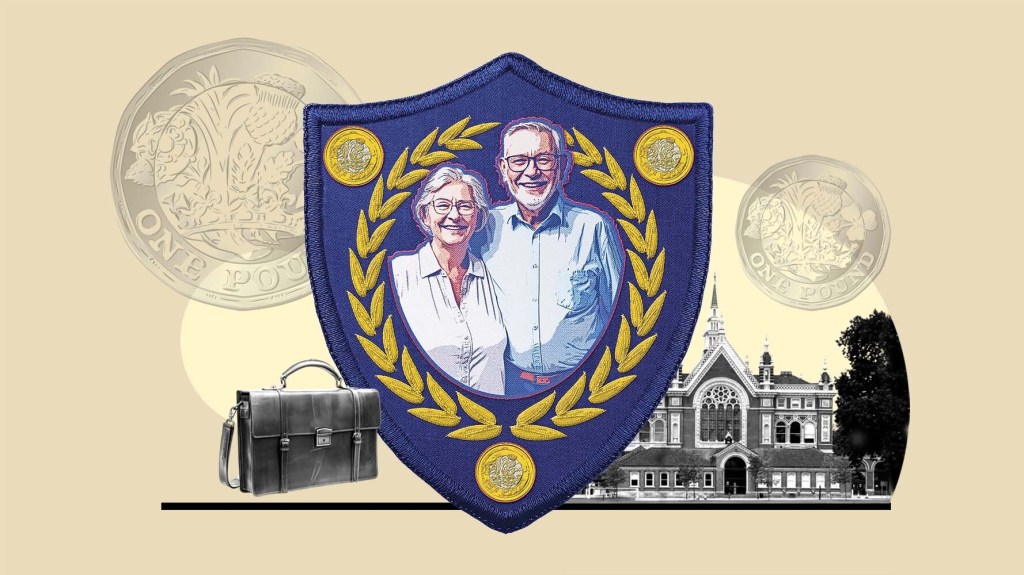From Hopeless to Hopeful: One Student’s Journey with a Learning Performance Coach
When my son revealed in January that he was done with school and would not be revising for his GCSEs, I felt a deep sense of despair.
This was not mere teenage rebellion. Luke, 15, had missed a significant portion of his first year of secondary school due to the pandemic lockdowns and was genuinely disheartened. After receiving dismal mock GCSE results, he was at an emotional low point, feeling that he had abandoned all hopes for the future. Overwhelmed by anger and frustration, he nonchalantly declared that studying and his future were of no concern to him.
Luke’s predicament is not isolated; many parents have shared similar experiences, particularly with their sons expressing feelings of discouragement towards schooling.
He is part of a generation whose formative years were disrupted by Covid lockdowns, leading to lasting issues. The aftermath is evident, with increased rates of absenteeism, anxiety, and self-harm among young people. Generation Z appears to be grappling with a widespread crisis of self-confidence.
In a bid to find assistance, I sought help through a mutual connection who introduced me to Tej Samani, a “learning performance coach” with an ambitious promise: boosting academic achievement by two grades within three months. Intrigued and in need of a solution, I decided to reach out to him.
We met Samani at his office near Bond Street station at the end of January. At 38, Samani hails from Potters Bar in Hertfordshire and combines a passion for teaching with motivational speaking. His own academic journey included attending three different schools and receiving mostly Cs and Ds at GCSE.

“I was always the kid in class who struggled,” he recalls. “I was placed in the lowest set for every subject, received countless detentions and negative reports, and couldn’t pass exams. Many told me I would never achieve anything.”
Although his family had high expectations for him to pursue university, Samani found his calling in sports. With a profound talent for tennis, he reached the ATP tour and had the opportunity to train alongside tennis legends like Andre Agassi and Andy Murray.
His experiences in tennis provided him with a discipline he previously lacked. During a tournament in Vienna, he had an enlightening realization: he could apply the mindset of elite athletes to the academic realm.
Samani transitioned careers, establishing his educational consultancy by the age of 22. He now holds a PhD from Coventry University without having completed an undergraduate degree, and his work with GCSE students has been published in multiple academic journals.
His methodology focuses on four critical areas: sleep, information retention and recall, structuring learning materials, and managing exam-related anxiety. He states, “I aimed to create a system where students would say, ‘Oh my God, I understand!’”
Samani employs an AI-driven assessment that takes just 20 minutes to complete, evaluating areas such as mental health, learning behaviors, and academic attitudes. It categorizes students’ challenges, ranging from “severe” to “no alert,” addressing factors like anxiety and time management.
Ultimately, he posits that many students feel overwhelmed due to a lack of effective information retention strategies. “That’s the heart of the issue — nothing more,” he explains.
Samani attributes the root problem to “consistent compounded cognitive overload” experienced by Generation Z, resulting from an ever-increasing academic load without equipping students with the necessary learning skills. He emphasizes, “To improve exam results, cultivate a love of learning, and ensure attendance, we must teach them how to learn effectively.”
I realized that Luke was at a loss when it came to revising. Although surrounded by revision guides, past papers, and notes, he lacked the skills to utilize them effectively. The daunting number of subjects and topics left him feeling paralyzed, leading him to shut down instead. Samani advocates for breaking tasks down into manageable parts, likening it to instructing someone with obesity to run a marathon.
After undergoing the assessment, students learn effective methods to organize, recall, and apply knowledge. He advises tackling each topic—up to 60 per GCSE subject—in short 15 to 20 minute segments using his method. The program includes online resources and coaching that can benefit students from Year 5 through university level.
Samani believes there is a “lost generation of geniuses” who have missed opportunities because they weren’t taught how to learn. Over the past 14 years, he has collaborated with 150 institutions. His AI assessment has engaged around 500,000 learners, including those in prisons, prestigious schools like Eton and Rugby, and academies in economically disadvantaged areas. His programs have reportedly improved grades for 93% of students, including a third with special educational needs.
“This isn’t just minor improvement; it represents a paradigm shift challenging everything we’ve assumed about student potential within a school year,” Samani asserts.

Since our initial meeting with Samani, Luke’s self-esteem has markedly improved. We have engaged with Tej multiple times, both in person and through frequent communication, and gradually, Luke has reconnected with his studies, believing in his ability to excel academically.
In a matter of weeks, this belief turned into tangible results. After his second set of mock exams in March, Luke raised his grades by one to two levels across his key subjects, much to the delight of his teachers. With only three weeks remaining before the actual exams, what matters most is that Luke has returned to a place of happiness and optimism about his future, which had seemed uncertain just weeks prior.
“I feel completely different from how I felt in January,” Luke expressed. “I’ve transitioned from believing I couldn’t do it to knowing that I can. I now feel I have options and hope for pursuing A-levels and perhaps even a degree.”




Post Comment